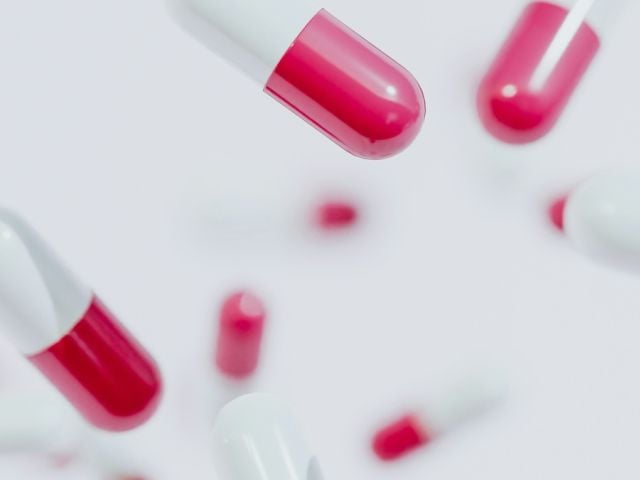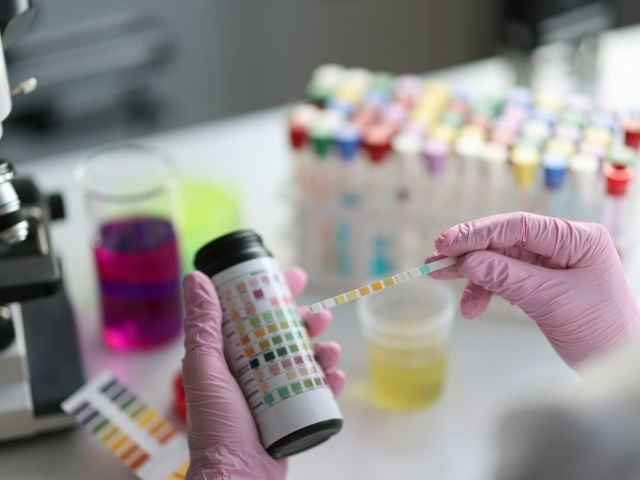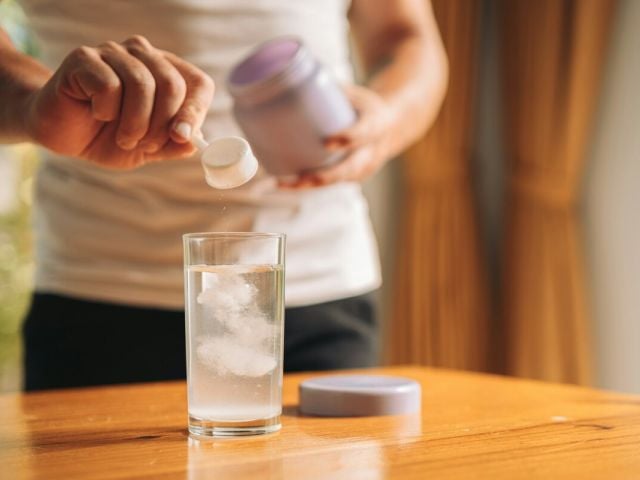
NMN Supplement Pricing: Why is NMN So Expensive?
If you’ve been shopping for NMN supplements, you’ve probably noticed the sticker shock. High-quality NMN products typically cost between $30-$100+ per bottle. The price of NMN often ranges from $0.001 to $0.004 per milligram.
But why is NMN so expensive compared to other supplements? The answer lies in a combination of complex manufacturing requirements, strict quality standards, and growing market demand for this longevity compound.
Key Takeaways
- NMN requires complex manufacturing processes and specialized equipment that drive up production costs.
- High-quality NMN demands 99%+ purity levels, requiring expensive testing and purification methods.
- Raw materials for pharmaceutical-grade NMN can cost up to $2,650 per kilogram.
- Growing market demand for anti-aging supplements keeps prices elevated despite limited supply.
Why NMN is So Expensive: The Real Factors Behind High Costs
Several interconnected factors drive the high cost of nicotinamide mononucleotide supplements. Understanding these elements helps explain why reputable manufacturers charge premium prices for quality products.
The expense stems from sophisticated production requirements, stringent purity standards, and specialized equipment needs. Each step in creating high-quality NMN adds significant costs that manufacturers pass on to consumers.
Market Growth Fuels Demand for NMN
The NMN market is experiencing explosive growth. Projections show expansion from $285 million in 2024 to $1,247 million by 2033, representing a 17.8% compound annual growth rate.
Another analysis estimates growth from $1.5 billion in 2024 to $6.0 billion by 20331. This surge in demand for NMN is driven by the aging global population and increasing interest in anti-aging vitamins.
The supply-demand imbalance keeps prices elevated as manufacturers struggle to meet growing consumer interest in cellular health optimization.
Complex Production Process Drives NMN Prices Higher
The primary driver behind NMN’s expense lies in its sophisticated manufacturing requirements. Creating pure nicotinamide mononucleotide involves detailed, labor-intensive chemical processes requiring precise conditions.
Enzymatic synthesis, the preferred method for higher purity and bioavailability2, requires skilled biotechnologists and chemists. The process involves multiple stages including refinement and rigorous quality control measures.
Some production methods achieve yields of 8.10 g/L NMN after 3 hours of reaction, representing a 56.86-fold improvement over traditional methods3. However, these advanced manufacturing processes require significant investment in specialized equipment and expertise.
The complex production process means manufacturers cannot simply scale up like basic vitamin production. Each batch requires careful monitoring and testing throughout multiple stages.
High-Quality Raw Material Sourcing Adds Costs
The cost of sourcing raw materials represents a major expense in NMN production. Premium suppliers are required to ensure the purity of precursor compounds like nicotinamide or niacin.
Lower-quality ingredients result in ineffective NMN products that fail to deliver the potential benefits consumers expect. Bulk NMN powder prices vary dramatically from $65-2,650 per kilogram depending on purity and supplier.
Pharmaceutical-grade raw materials command the highest prices but are needed to produce supplements that meet stringent quality standards. Reputable manufacturers source only the purest starting materials to ensure their final NMN product delivers consistent results.
| Raw Material Quality | Price Range per kg | Purity Level |
|---|---|---|
| Standard Grade | $65-200 | 95-98% |
| Premium Grade | $200-800 | 98-99% |
| Pharmaceutical Grade | $800-2,650 | 99%+ |
Stringent Quality Control Requirements Increase Costs
High-quality NMN supplements require purity levels exceeding 98-99%. Achieving these standards necessitates expensive purification processes and extensive testing protocols.
Manufacturers must implement High-Performance Liquid Chromatography (HPLC) testing and Nuclear Magnetic Resonance (NMR) spectroscopy for verification. Third-party testing for contaminants including arsenic, cadmium, lead, mercury, and microbial contaminants adds significant costs.
Each batch undergoes independent testing to confirm over 99% purity and freedom from contaminants. This rigorous testing is needed to ensure purity but substantially increases production costs.
Quality control measures include:
- Multiple purity verification tests per batch
- Heavy metal contamination screening
- Microbial testing for safety
- Potency verification throughout shelf life
- Third-party laboratory confirmation
When choosing the best NMN supplement, these quality standards separate premium products from cheaper alternatives that may contain impurities or lower concentrations.
Specialized Equipment and Facilities Drive Up Costs
NMN production requires specialized facilities designed for large-scale synthesis under strict conditions. Manufacturing must comply with Good Manufacturing Practices (GMP) and FDA regulations.
The enzymatic synthesis process demands advanced bioreactor systems and controlled environments that require significant capital investment. Facility maintenance costs and regulatory compliance expenses add to the overall production budget.
Companies must invest in:
- Advanced bioreactor systems for synthesis
- Climate-controlled storage facilities
- Specialized purification equipment
- Quality testing laboratories
- GMP-compliant manufacturing spaces
These infrastructure requirements mean only well-funded manufacturers can produce high-quality NMN consistently. The substantial upfront investment gets reflected in the final product pricing.
Cellular Health Benefits Justify Premium Positioning
Many NMN manufacturers position their products as premium longevity supplements targeting health-conscious consumers. The association with cellular health research allows companies to maintain higher pricing strategies.
NMN functions as a precursor to NAD, a coenzyme involved in over 500 cellular activities. Research suggests NMN supplementation may support energy metabolism, DNA repair, and healthy aging processes.
The potential benefits of NMN supplementation include improved energy levels, better sleep quality, and enhanced cognitive function. These compelling health applications allow manufacturers to position NMN as a premium wellness investment.
Consumers interested in anti-aging and longevity are often willing to pay higher prices for scientifically-backed products. This market positioning helps maintain premium pricing despite the high cost of production.
Packaging and Stability Requirements Add Hidden Costs
NMN’s sensitivity to moisture, temperature, and light necessitates specialized packaging solutions. Products require opaque, air-resistant containers with desiccants and temperature-controlled storage conditions.
Whether sold as powder or capsule form, NMN demands advanced packaging technologies to maintain stability. The compound can degrade quickly without proper protection from environmental factors.
Stability testing throughout the product lifecycle adds significant costs. Manufacturers must verify that their NMN product maintains potency from production through the expiration date.
Advanced packaging requirements include:
- Moisture-resistant containers
- Light-blocking materials
- Temperature-controlled storage
- Oxygen-absorbing packets
- Tamper-evident sealing
These packaging innovations protect product quality but increase manufacturing costs substantially compared to basic supplement bottles.
Regulatory Challenges Create Market Uncertainty
The regulatory environment adds complexity and costs to NMN production. The FDA’s controversial 2022 decision to exclude NMN from dietary supplement definitions created market uncertainty4.
Recent court rulings have provided some clarity, but manufacturers must navigate evolving regulations while ensuring compliance with safety standards. This requires additional investment in legal and regulatory affairs.
Regulatory challenges affect both domestic and international markets. Companies must invest in compliance efforts that add to overall business costs without directly improving the product.
The regulatory uncertainty makes some manufacturers hesitant to invest heavily in NMN production, potentially limiting supply and maintaining higher prices.
Research and Development Investment Drives Innovation
As a relatively new supplement, NMN requires substantial research and development investment. Companies must fund studies to demonstrate efficacy and safety profiles.
Scientific research costs contribute to overall pricing as manufacturers seek to validate their products through clinical testing. The ongoing need for trials and product development maintains high operational expenses.
Research investment areas include:
- Clinical efficacy studies
- Safety profile research
- Bioavailability testing
- Optimal dosage determination
- Long-term effects analysis
When comparing NMN vs NAD supplementation approaches, the research costs for NMN specifically add to its premium positioning in the longevity supplement market.
Comparing NMN to Alternative NAD Precursors
Understanding why NMN is still expensive compared to alternatives like nicotinamide riboside (NR) or niacin helps put pricing in perspective. NMN requires more complex synthesis than simpler NAD precursors.
Comparing NMN to NR shows different manufacturing requirements. While both serve as NAD precursors, NMN’s larger molecular structure demands more sophisticated production methods.
Niacin, the simplest NAD precursor, costs significantly less to produce but may not offer the same bioavailability benefits as NMN. The higher price reflects the advanced chemistry needed to create this specific compound.
Some people combine NMN with other compounds like resveratrol for potential synergistic effects, but this adds to the overall supplementation cost.
How to Find Value in NMN Products
Despite the high cost, consumers can find value by focusing on quality indicators rather than just price. Look for products with third-party testing, clear labeling, and transparent manufacturing information.
Check out our NMN dosage guide to understand how much you actually need. Higher potency products may offer better value per serving despite appearing more expensive upfront.
Jinfiniti’s Pure NMN Powder exemplifies the quality standards that justify premium pricing. With 99.5% purity verified through third-party testing, it represents the pharmaceutical-grade manufacturing that drives costs higher.
Quality indicators to evaluate:
- Third-party purity testing results
- GMP manufacturing certification
- Clear dosage recommendations
- Transparent labeling practices
- Proper packaging protection
NMN Supplement Prices Compared to Jinfiniti
Despite the high cost factors affecting NMN production, Jinfiniti maintains competitive pricing in the premium supplement market. Research shows that most competitors charge significantly more per gram of actual NMN content.
Jinfiniti’s Pure NMN Powder costs $1.93 per gram, while our Vitality NAD+ Booster averages $1.97 per gram. This positions Jinfiniti as a value leader among high-quality NMN suppliers.
| Brand | Product | Price per Gram | vs Jinfiniti |
|---|---|---|---|
| Jinfiniti | Pure NMN Powder | $1.93 | Baseline |
| Lifeforce | Peak NMN | $8.00 | 4.1x higher |
| ProHealth | NMN Pro Complete | $7.40 | 3.8x higher |
| Hello100 | Liposomal NMN | $5.60 | 2.8x higher |
| GenuinePurity | Liposomal NMN | $5.33 | 2.7x higher |
| Wonderfeel | NMN Capsules 1000mg | $4.00 | 2.0x higher |
| Wonderfeel | Youngr NMN | $3.26 | 1.7x higher |
| PartiQlar | Pure NMN | $2.67 | 1.4x higher |
Many premium competitors justify higher prices through specialized formulations like liposomal encapsulation or complex multi-ingredient blends. However, these additions may not provide proportional value compared to high-purity NMN powder.
The data shows that consumers often pay premium prices for marketing positioning rather than superior quality. Jinfiniti’s pharmaceutical-grade manufacturing and 99.5% purity verification deliver exceptional value at competitive pricing.
The Future of NMN Pricing
While costs may decrease as production scales and technology improves, the premium nature of NMN supplementation will likely persist. The specialized applications and quality requirements maintain barriers to low-cost production.
Market growth continues driving demand faster than supply expansion. Until manufacturing capacity significantly increases, pricing pressure will likely keep NMN supplements in the premium category.
The combination of complex manufacturing, stringent quality requirements, expensive raw materials, and growing demand creates sustained upward pressure on NMN prices. For consumers seeking cellular health support, understanding these factors helps justify the investment in quality products that deliver reliable results.
- https://www.verifiedmarketreports.com/product/longevity-enzyme-nmn-market/ ↩︎
- https://bioresourcesbioprocessing.springeropen.com/articles/10.1186/s40643-022-00514-6 ↩︎
- https://analyticalsciencejournals.onlinelibrary.wiley.com/doi/10.1002/biot.202300748 ↩︎
- https://www.nmn.com/news/the-npa-files-a-lawsuit-against-the-fda-over-nmn-ban ↩︎

Get weekly health insights and exclusive offers by joining our newsletter.










